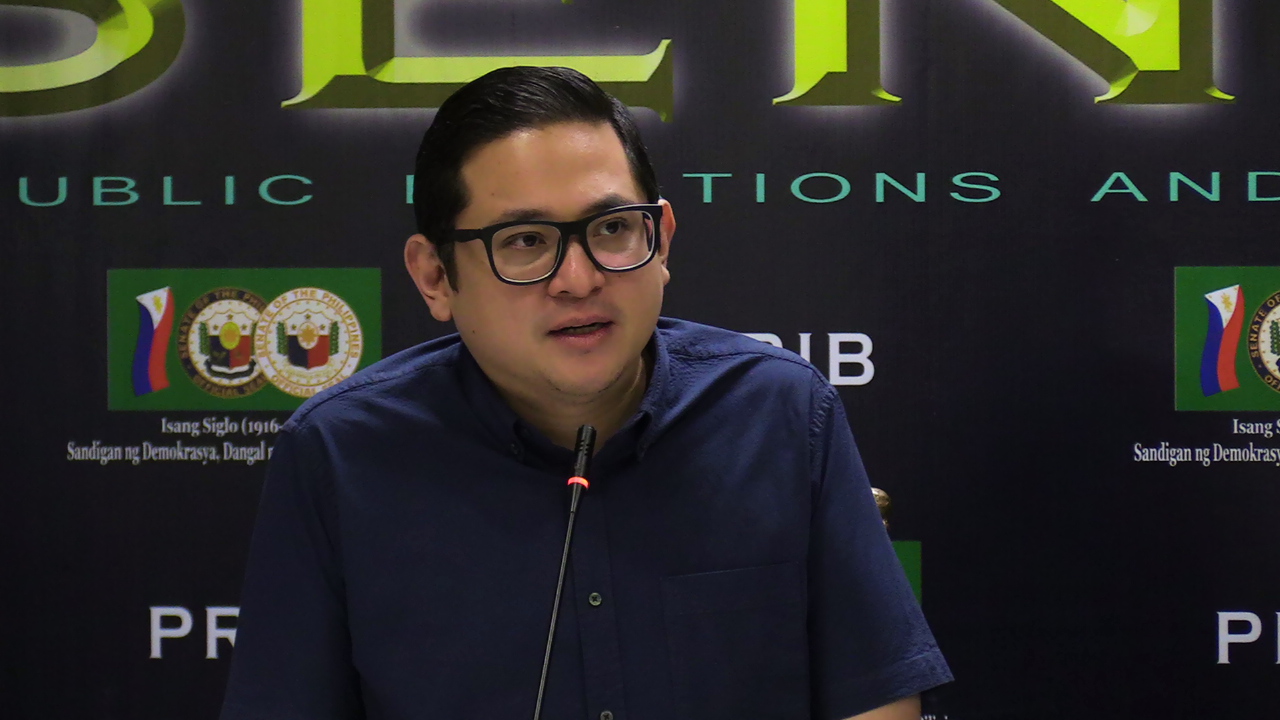3-month break in fuel tax hike ‘too short’

Sen. Bam Aquino. INQUIRER.NET PHOTO/CATHY MIRANDA
A three-month suspension of fuel tax increases would hardly make a dent in prices of basic goods and help the public, according to Sen. Bam Aquino.
Aquino reiterated on Thursday that the excise on fuel imposed this year as part of the Tax Reform for Acceleration and Inclusion (TRAIN) Act should be rolled back to 2017 rates to stop the prices of goods from rising further.
According to the senator, the Duterte administration’s plan to suspend additional fuel excise taxes for the first three months of 2019 was not enough to make a difference, as the market might not have enough time to react and adjust prices.
Fuel levy rollback
“If you look at market dynamics, three months is really too short to be felt by the people,” Aquino said at the Kapihan sa Senado forum.
Article continues after this advertisementHe called for bipartisan support for the joint resolution filed by senators from the minority for the suspension of the excise tax increase under the TRAIN law and the rollback of fuel levy to December 2017 rates.
Article continues after this advertisementHe also appealed for support for his bill that would amend the TRAIN law to provide for the suspension of the excise on fuel when the average inflation rate for a three-month period exceeded the annual inflation target.
There is a scheduled P2 increase in the fuel excise on Jan. 1 next year, but the country’s finance managers have recommended its suspension to the President.
The Department of Finance on Wednesday said the suspension might only be for three months depending on world oil prices.
Source of revenue
But Aquino said the government should stop using excise on fuel as a source of revenue because this affected many sectors, especially agriculture and manufacturing.
Farmers use diesel to power farm machines, and higher fuel prices could drive up food prices, he said.
Manufacturers also use fuel for their operations, further driving up inflation, he added.
For additional revenue, Aquino said, the administration could order reforms in the Bureau of Customs to improve its collection. The Bureau of Internal Revenue could do so as well.
“All of these are better options as a revenue source instead of petroleum products,” he said.